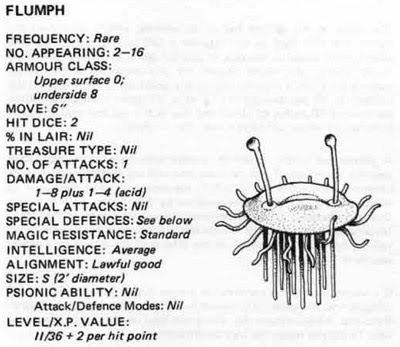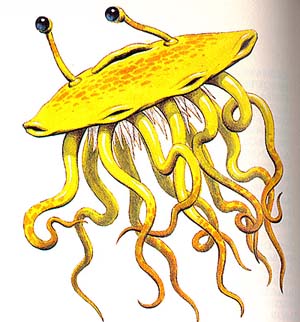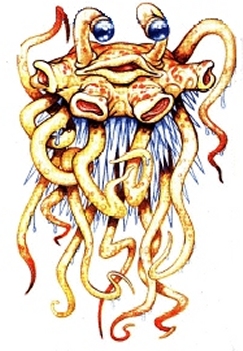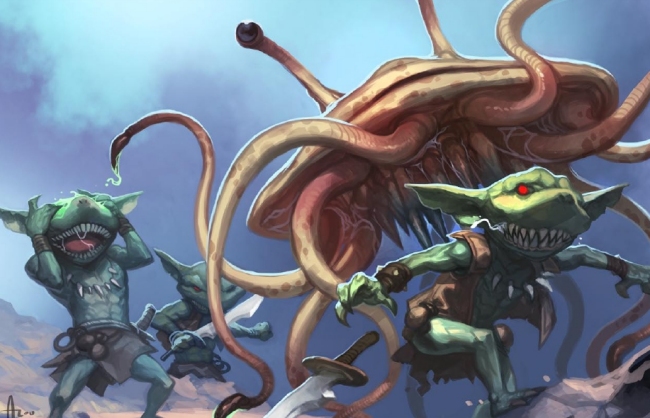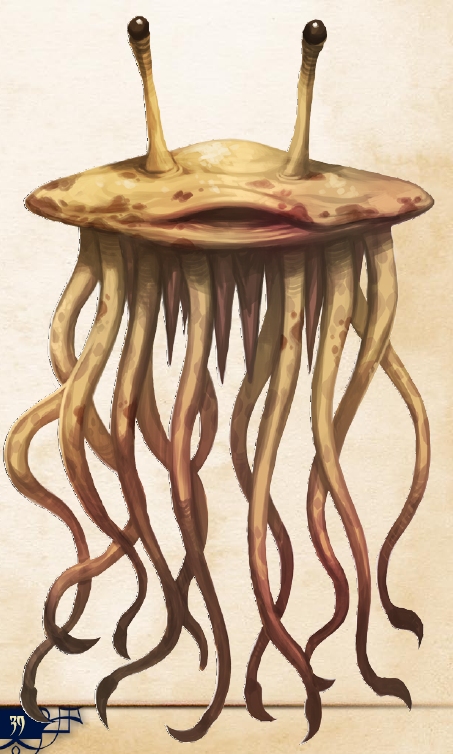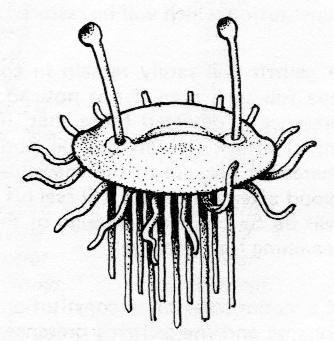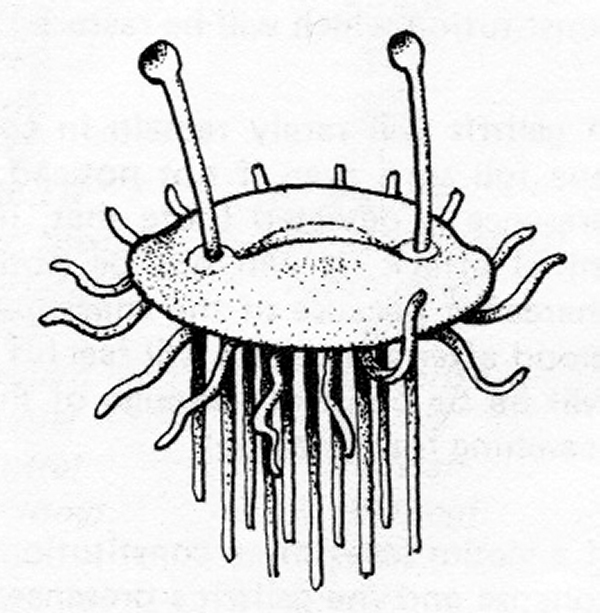|
Written by Jonathan Wojcik
The cutely named Flumph was an innocent enough entry in the 1981 Fiend Folio, a hovering saucer-shaped invertebrate with an underbelly of corrosive spines and a skunk-like stench attack. It fit in fairly well alongside such tentacled horrors as the Carrion Crawler, Otyugh or Roper, but in a clever twist, this bizarre and alien monster was conceived as a good guy. Yes, the entire Flumph race is highly intelligent, peace loving and categorized as "lawful good," which is as righteous and pure as something can possibly be in Dungeons & Dragons terminology. It's a category shared by the likes of golden unicorns and rainbow-winged angels. These are gaseous, acidic air-mollusks who would rub shoulders with Jesus at a charity dinner for disabled kittens. What's not to love?
As a kid, I never liked how often the strangest, least humanoid monsters in fiction were either mindless beasts or malicious antagonists, so the Flumph was, in my eyes, an innately appealing change of pace. I still didn't know anyone who played the game or even exactly how it was supposed to work, but always presumed players would undoubtedly welcome inclusion of the gentle, helpful Flumph in their adventures. My innocent young mind conjured visions of brave warriors discovering Flumph villages under siege by bands of Blindheim or Hook Horrors, falling in love with those beady little snail-eyes and risking everything to free the sympathetic creatures from oppression. My imagination had essentially appointed the Flumph as a lovable "mascot" of the entire D&D world, like the Moogles of Final Fantasy or the slimes of Dragon Quest.
The Flumph would rarely be reprinted by official materials, and as an outsider to the gaming community, I long assumed it was just another obscure, interesting concept overlooked and forgotten by the fandom at large. I never could have guessed how wrong I was.
Only in recent years would I discover that the Flumph was, as a matter of fact, fairly well remembered by the gaming community - as one of the "worst" ideas in the game's entire publication history. Apparently, consensus among players has been that a friendly, malodorous, levitating jellyfish was impossible to take seriously in a world also populated by coprophagous tripods, brain-sucking squid people and giant, tentacled cats that magically look farther away. It was accused of being stupid-looking, useless to campaign settings and only acknowledged by official Dungeons and Dragons resources as the butt of the occasional joke. Its creator was, at one point, supposedly driven to publish a detailed defense of the concept, which fell upon deaf ears. What am I missing, here? Who's responsible for what is obviously nothing but an arbitrary bandwagon of discrimination? The Flumph has corrosive thorns, tentacles and eyes on stalks. It flies, it talks and it wants to be your pal. At what point does any of that stop sounding cool to anybody with any sense of fun?
Thankfully, not everyone was willing to sweep the Flumph under the rug and only drag it out for April Fool's day. In Paizo Publishing's Misfit Monsters Redeemed, the Flumph is updated for more modern gameplay with a virtually unaltered design (Wizards of the Coast could learn a lot from this) and vastly expanded lore by writer Adam Daigle that could have been ripped straight from my childhood musings; injected with a dash of the Lovecraftian, the Flumph once lived in service to forgotten, alien deities older than time itself, and have spread across reality as clerics, prophets, thinkers and observers who protect entire worlds from interdimensional evils, cosmic horrors and otherworldly calamity beyond mortal comprehension. Unfortunately, many races are reluctant to trust rancid-smelling tentacle monsters with acid-dripping needles, so the Flumph are often forced to operate in secret, making their presence known only to warn civilizations of impending doom or impart their wisdom upon great heroes.
At one point, the book even suggests a scenario where the player characters come to the aid of a secret Flumph village.
Misfit Monsters does a wonderful job handling the Flumph with dignity and respect, though it still confounds me that the Flumph was ever such a "misfit" to begin with. Even Paizo's introduction to the book regards the monsters collected as "lame" before they were rewritten with apparent difficulty into something more respectable.
Look at that little face.
How can you not respect that? |
